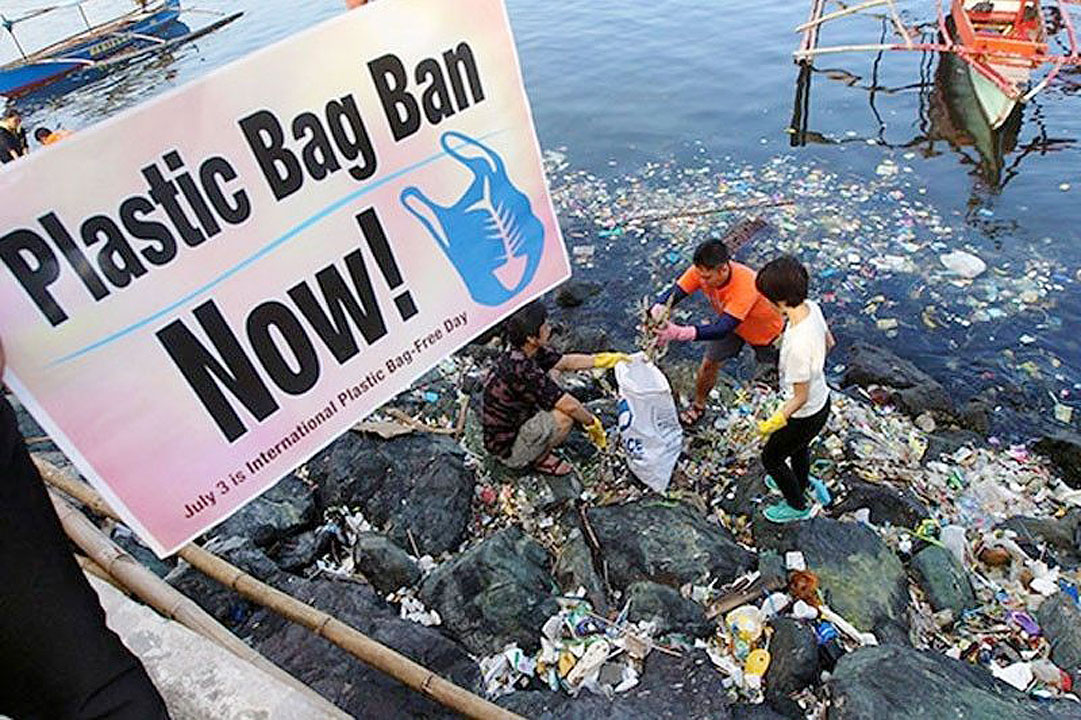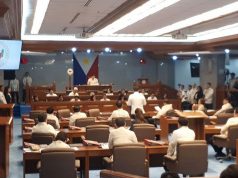To reduce plastic waste leakage, LGUs and port authorities should agree on plastic bans

Local governments and port authorities should align on plastic bans to reduce the amount of plastic leaking into the ocean, according to a solid waste management study by World Wildlife Fund for Nature (WWF) Philippines.
Clean Ports, Clean Oceans: Improving Port Waste Management in the Philippines is a three-year partnership project funded by the Norwegian-based Grieg Foundation that aims to identify and test out scalable waste management solutions for ports to adopt.
Implementing these solutions will be difficult in cities that do not have a single-use plastics ban, said Czarina Constantino-Panopio, project manager of the baseline study on port waste management.
Ms. Panopio noted that a number of local government units do not have regulations that complement Philippine Port Authority (PPA) MC no. 11-2021, which bans the use of unnecessary single-use plastic products in all PPA ports, facilities, and offices.
“What happens when passengers go out the port and the city [the port is in] doesn’t ban any kind of plastic?” she asked at a Jan. 28 event detailing the study. “There needs to be an alignment. It’s challenging to ban plastic in a port if the city the port is in doesn’t have [a ban].”
The study covers three types of waste: vessel-generated waste, port-generated waste, and community-generated waste. It aims to cut in half the plastic waste leakage in Manila North Port, the Port of Batangas, and the Port of Cagayan de Oro.
Not all ports have their own material recovery facility (MRF), the study found. Some that have an MRF use it more as a waste receptacle rather than a facility where the segregation and utilization of waste is done. Not all barangays have functioning MRFs either.
A majority of port- and vessel-generated waste (61% and 67%, respectively) are recyclable, the study also found. Only 4% of these are recovered.
“We don’t want to condemn any port authority with this data. We see this as an opportunity to improve the current collection and management system,” said Ms. Panopio.
RECOMMENDATIONS
Clean Ports, Clean Oceans offers the following recommendations: stricter implementation and review of existing laws and policies; improved coordination among stakeholders; and better data management. It also calls for the monitoring and utilizing of plastic wastes, the installation of functional MRFs, and the carrying out of education campaigns towards sustainable waste management.
Ms. Panopio added that data management is already being covered by port management offices (PMOs), but at a voluntary level.
The PPA has around 10 memoranda and/or orders pertaining to solid waste management. PPA AO no. 08-2018, ensures the continuity of SRFs, a system used for receiving waste, in ports under PPA’s jurisdiction. Another, PPA AO 05-2018, provides the legal basis and enforcement of PPA’s programs towards a green and resilient port strategy.
The Philippines has a total of 552 ports — 271 of which are private — that are managed by 25 PMOs.
Partnership is crucial for sustainability, said Gry Larsen, leader of sustainability and public affairs of the Grieg Group of Companies, which established the Grieg Foundation.
“One challenge of plastic pollution is the lack of data about plastic waste,” she said. “Therefore, this study is a crucial step.” — Patricia B. Mirasol



